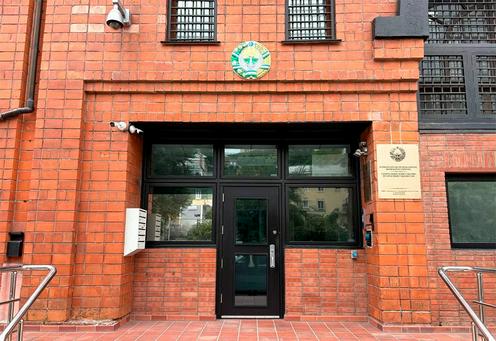The Consulate General of Uzbekistan in Vladivostok has sent notes to Russian authorities following the beating and harassment of several Uzbek citizens, according to Consul General Yusup Kabulzhanov.
The attacks on Uzbeks occurred overnight on September 10. The Investigative Directorate of Russia’s Investigative Committee for Primorye reported that a group of intoxicated teenagers carried out the assaults. They damaged a parked car, sprayed gas inside the vehicle, and attacked a truck driver. The same group then stormed a 24-hour shop on Khabarovskaya Street, beating a man in front of visitors and staff, before targeting a taxi driver and passenger. On the street, they shouted loudly, threw stones, and used improvised objects against a passerby, disturbing public order. All participants have been identified: one was detained, and two remain wanted.
Video footage published by Rasul Kusherbayev, an adviser to Uzbekistan’s ecology minister, showed the victims to be migrants from Bukhara region. Kusherbayev wrote that the victims said the consulate had not provided assistance and only advised them to turn to Russian law enforcement, which they considered both pointless and intimidating. He urged Uzbekistan’s Foreign Ministry to intervene.
Kabulzhanov, however, said that as soon as information about the incident surfaced, consulate staff contacted the victims and offered legal support. As a result, the Uzbeks filed formal complaints with the Main Directorate of the Interior Ministry in Vladivostok. On September 16, the Investigative Committee in Primorye announced that a criminal case had been opened against the group under Part 2 of Article 213 (“Hooliganism”) of the Russian Criminal Code.
The consulate stressed that the case is under the joint control of both the diplomatic mission and Russian law enforcement. Kabulzhanov also noted that some social media users have been calling for vigilante justice against the suspects, warning that such actions are illegal and reminding them of responsibility for self-administered reprisals.
Earlier in September, Uzbekistan’s Foreign Ministry sent an official note to its Russian counterpart over an incident in the Moscow suburb of Khimki, where a Russian national verbally abused an Uzbek taxi driver. The ministry emphasized that Uzbek citizens remain under state protection regardless of where they are and should turn to the country’s diplomatic missions abroad if their rights are violated.










